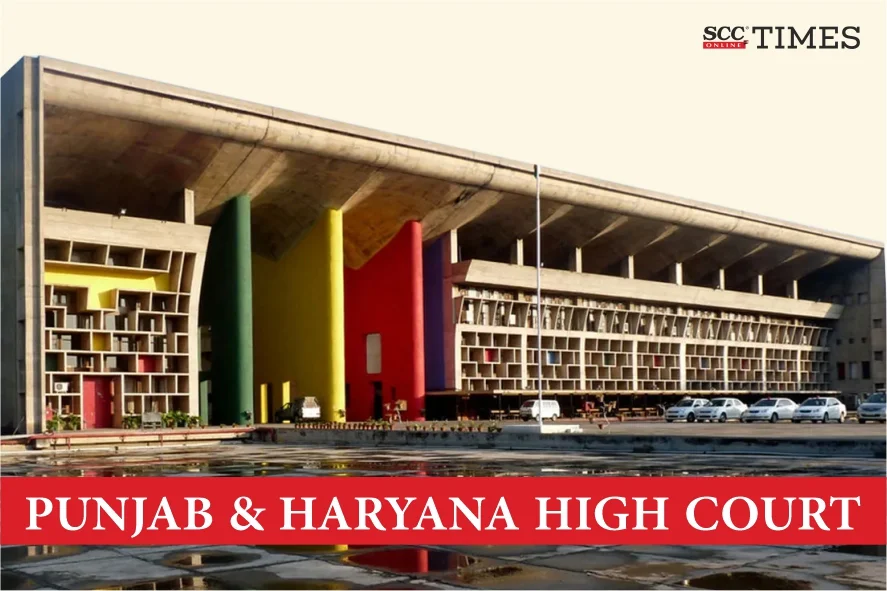Punjab and Haryana High Court: In a set of two anticipatory bail applications filed by two accused who allegedly participated in the registration of an illegal sale deed, wherein the buyer was being impersonated, a Single Judge Bench of Harpreet Singh Brar, J., rejected the applications, holding that the facts and circumstances of the case clearly indicated that the accused were part of a larger conspiracy to usurp the properties of NRIs.
Background
The buyer had made an appointment to register a sale deed for a property situated in Village Noorpur Bet-2. At the time of registration of the sale deed, in place of the buyer, an impersonator appeared (‘impersonator’) with a sale deed drafted by his advocate. After the registration of the sale deed, it was received on behalf of the buyer by the impersonator from the Registration Clerk. Upon becoming suspicious, the buyer’s advocate obtained the original sale deed from the buyer and produced it before the Registration Clerk, inquiring whether the deed was executed and registered by the impersonator.
It was discovered that the Sub-Registrar had certified the impersonator as the seller at endorsement 1 on the sale deed. At endorsement 2, the Sub-Registrar certified a witness and accused 1 herein as witnesses, although the first witness was not present, and neither did he sign the sale deed nor was his photograph affixed. In his place, the impersonator’s advocate and accused 2 herein signed and affixed their photographs on the sale deed. Thus, accused 1, the impersonator’s advocate, and accused 2 certified the impersonator as the real seller. Additionally, the Registration Clerk did not tally the witnesses and produced the sale deed for registration before the Sub-Registrar. The buyer or his representative also did not raise any objection regarding the registration of the sale deed with changed witnesses.
Thereafter, a report was received from the Tehsildar concerned, Vigilance Bureau, Mohali. As per the police, the impersonator, the two accused, the advocate, the Sub-Registrar, the Registration Clerk, and the computer operator concerned committed offences punishable under Sections 318(4), 319(2), 336(2), 336(3), 338, 340(2), and 61(2) of the Bharatiya Nyaya Sanhita, 2023 (‘BNS’). Accordingly, the FIR was lodged under the aforesaid Sections of BNS along with Section 81 read with Section 34(3) and 82 of the Registration Act, 1908. Hence, the present applications.
Analysis
The Court noted that the suit property measuring 14 kanals of land worth several crores was owned by a Non-Resident Indian (‘NRI’). The suit property was sold by producing impersonating and for Rs. 30.20 Lakhs, out of which the cheques worth Rs. 30 lacs were never presented for encashment. The Court further noted that it was strange that the Sub-Registrar, at the time of execution of the sale deed, allowed the presentation of cheques instead of demand drafts.
The Court also noted that the appointment for registration was taken by the first witness on behalf of the buyer. This witness, as noted above, did not appear, instead, the impersonator’s advocate appeared and identified the parties as marginal witnesses. Furthermore, the accused 1 herein identified the impersonator as the seller and owner of the suit property. The Court added that the role of the impersonator’s advocate, a co-accused, was similar in nature.
Further, the Court noted that the CCTV footage of the office of the Sub-Registrar showed that the accused were present at the time of registration of the sale deed. One of the co-accused also disclosed how and to what extent the money was distributed between the accused persons.
Noting the aforesaid, the Court stated that the facts and circumstances of the case indicated that the accused herein and other co-accused were part of a larger conspiracy of usurping the properties of NRIs. Even in the present case, the real owner was not even aware of the fraud when the sale deed was executed in favour of the co-accused by way of impersonation. The Court further stated that apart from this, no sale consideration exchanged hands, and custodial interrogation of the accused was imperative to establish the role of the other co-accused, including the revenue officials.
The Court remarked that the present case was yet another example of a disturbing trend that was steadily gaining ground, wherein unscrupulous individuals took advantage of NRIs, particularly those who are unable to visit India frequently or manage their properties here. Time and again, such vulnerable property owners are defrauded through forged documents and misuse of Powers of Attorney, often resulting in the sale of their properties at grossly undervalued rates. The scale of this deceit is symptomatic of systemic abuse, where absence is weaponized and legal safeguards are routinely undermined.
The Court added that these offences were rooted in a breach of trust and stand on a different pedestal than conventional criminal offences in terms of criminal jurisprudence as they not only impact the personal and financial security of the victims but also have cascading effects on public trust in the real estate ecosystem, and ultimately, the economic stability of the State. The gravity of such acts extends far beyond individual transactions, they corrode institutional credibility and social conscience. Therefore, the Court held that it could not afford to treat such cases lightly while considering the grant of bail.
Given the active participation of the accused persons and the criminal antecedents accused 1, the Court found no ground to grant anticipatory bail, and thus, both applications were rejected.
[Bagel Singh v. State of Punjab, 2025 SCC OnLine P&H 2504, decided on 19-05-2025]
Advocates who appeared in this case :
For the petitioner: Karan Bansal, Raghav Puggal, Karan Puggal, Atul Goyal
For the respondent: DAG of Punjab Sandeep Kumar, Rajiv Malhotra, and Manan Khetarpal


